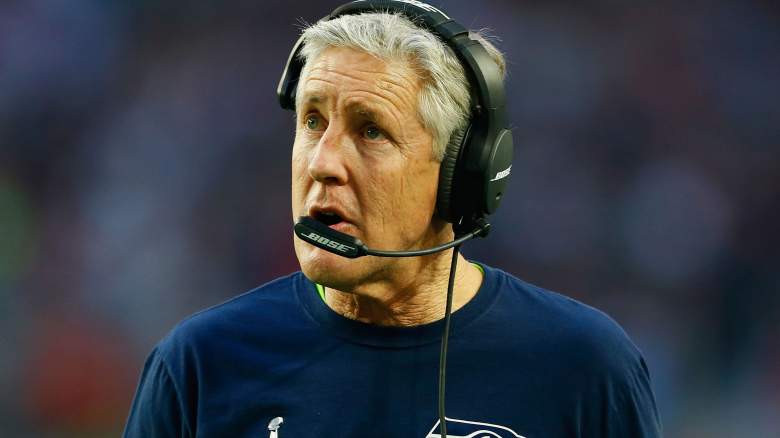
In the NFL, every decision matters — and some matter much more than others.
Some of the most consequential coaching decisions in NFL history have altered the course of franchises, shifted championship outcomes and left fans with unfavorable memories that can last a lifetime.
These choices — sometimes split-second calls, sometimes strategies set up weeks in advance — highlight the extreme pressures coaches face in the high-stakes world of professional football. Mistakes in clock management, personnel usage, or situational play-calling have also repeatedly demonstrated how a single decision can turn a game on its head, sometimes leading to a cascade of unfortunate results that haunt franchises.
Not all poor coaching decisions are made in the heat of the moment, however — some arise from conservative play-calling strategies or over-reliance on underperforming players. This list attempts to cover them all. We’ll rank the worst head coaching decisions in NFL history, starting with a very memorable draft blunder and ending with a Super Bowl loss:
10. Mike Ditka Trading an Entire Draft for Ricky Williams (1999)
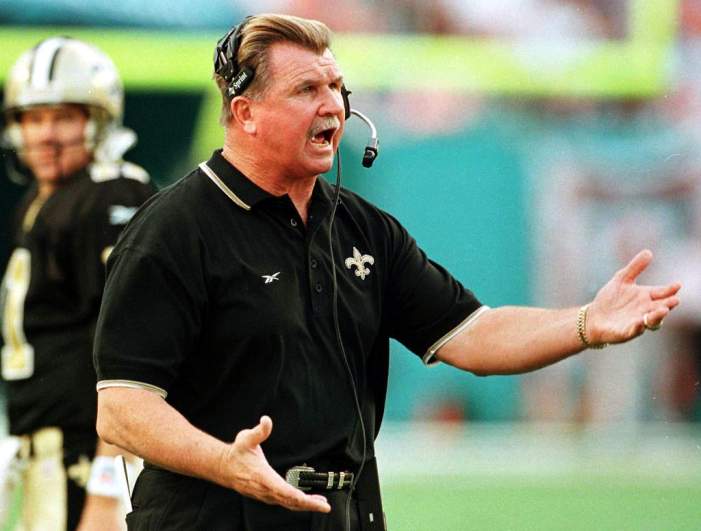
GettyFormer New Orleans Saints head coach Mike Ditka.
The year was 1999. Former New Orleans Saints head coach Mike Ditka made one of the most questionable decisions any NFL coach ever made when he traded every last one of the Saints’ 1999 draft picks in order to draft running back Ricky Williams. Ditka essentially mortgaged the team’s future on one player, which ultimately limited roster flexibility and the team’s ability to compete long-term.
Ditka’s trade for Williams is an absolute case study in NFL risk management failures, as it essentially placed an entire franchise’s future on one player’s shoulders. The move depleted the Saints’ draft capital, limited their future opportunities and ultimately failed to yield a competitive team, cementing it as a strong candidate for this list.
9. Matt Eberflus’ Game Management vs. Washington Commanders (2024)
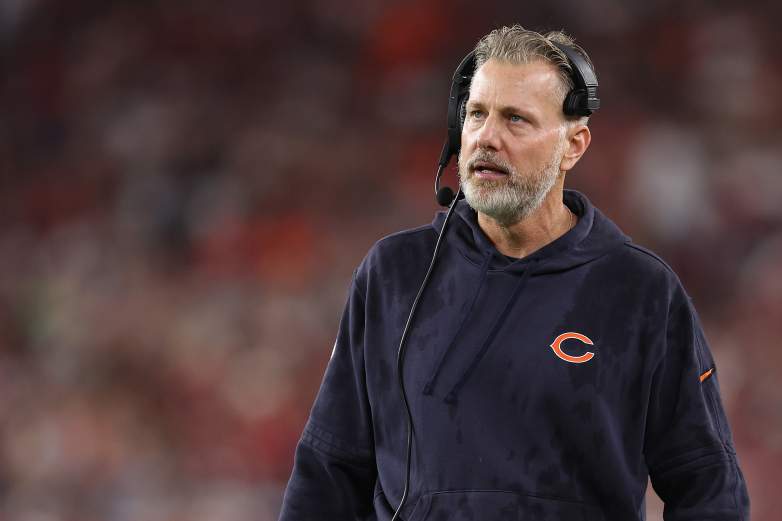
GettyHead coach Matt Eberflus of the Chicago Bears.
This one will stick with fans of the Chicago Bears for quite some time. Leading 15-12 with only 23 seconds remaining Week 8 against the Washington Commanders, Bears head coach Matt Eberflus opted to play a prevent defense that allowed the Commanders to gain 13 unchallenged yards, moving them closer to midfield. This decision was pivotal, as it set up a more feasible Hail Mary attempt for Washington — a Hail Mary that was successful and led to an 18-15 Washington victory.
Additionally, despite having all three timeouts available, Eberflus chose not to use any to organize his defense during the Commanders’ final game-winning drive. Utilizing a timeout could have provided the defense with an opportunity to regroup and better prepare for the impending Hail Mary attempt. The decision baffled fans and analysts alike, and was widely criticized.
8. Urban Meyer’s Brief Jaguars Tenure (2021)
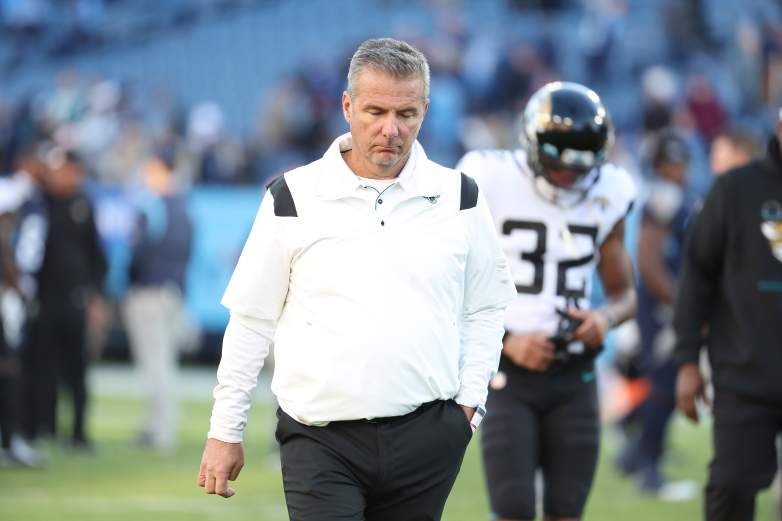
GettyEx-Jags coach Urban Meyer.
Urban Meyer’s entire stint with the Jacksonville Jaguars in 2021 was plagued by controversial decisions, which included skipping team flights, something that’s virtually unheard of. Fired before completing a full season, his is widely considered one of the NFL’s worst coaching stints. Quarterback Trevor Lawrence, the first overall pick of the 2021 draft, struggled in his rookie season under Meyer. Lawrence had 12 touchdowns and a league-high 17 interceptions, in part due to the lack of an effective offensive system and poor guidance.
Meyer led the Jaguars to a 2-11 record before he was axed. The team was statistically one of the league’s worst, ranking near the bottom in most offensive and defensive categories. The Jaguars finished dead last in points scored that year (14.9) and 28th in points allowed (26.9), demonstrating ineffectiveness on both sides of the ball. If that’s all not enough, he even signed former quarterback Tim Tebow as a tight end. That alone warrants admission on this list.
7. Jim Caldwell’s Decision to Rest Starters (2009)
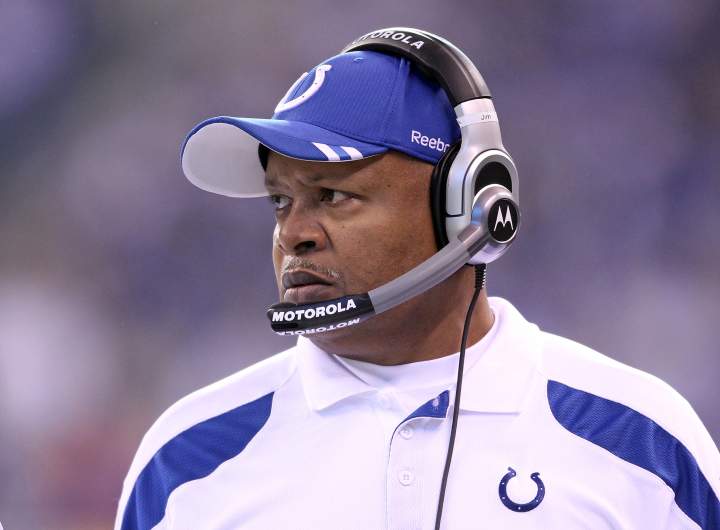
GettyEx-Colts coach Jim Caldwell.
The Indianapolis Colts were 14-0 heading into their Week 16 game against the New York Jets when former head coach Jim Caldwell made a serious blunder with rippling consequences. In the third quarter with the Colts leading, he benched key starters, including quarterback Peyton Manning. The Jets capitalized and won the game, effectively ending the Colts’ undefeated run. This decision cost the Colts a shot at becoming just the second team in NFL history, after the 1972 Miami Dolphins, to complete a perfect season.
While the Colts did reach the Super Bowl under Caldwell that year, they ultimately lost to the Saints. Critics argued that his fateful decision to rest starters disrupted the team’s momentum and possibly impacted its readiness for high-stakes playoff games.
6. Marty Mornhinweg’s Decision to Kick in Overtime vs. the Bears (2002)
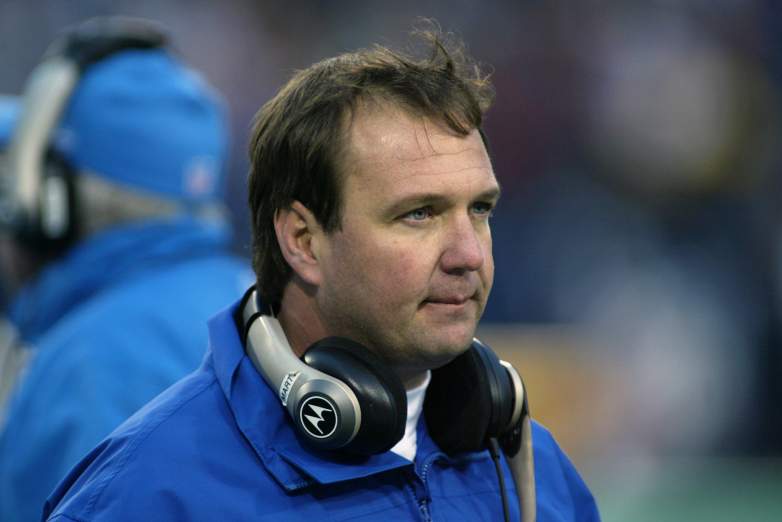
GettyEx-Lions head coach Marty Mornhinweg.
Former Detroit Lions head coach Marty Mornhinweg makes our list for one of the most head-scratching moves we’ve seen a coach make. Heading to overtime against the Bears in 2002, Mornhinweg and the Lions won the coin toss, but instead of electing to receive, chose to kick the ball away. Under NFL rules at the time, overtime was played with sudden death — meaning the first team to score won the game. By choosing to kick, Mornhinweg effectively handed the Bears the first possession and a clear path to win.
The decision immediately backfired when the Bears took the ball, marched down the field and won with a field goal on their first possession, leaving Lions fans with their mouths agape and their hearts crushed. That loss dropped them to 3-8, worsening an already dismal season.
5. Bill Belichick’s 4th-and-2 Call vs. Colts (2009)
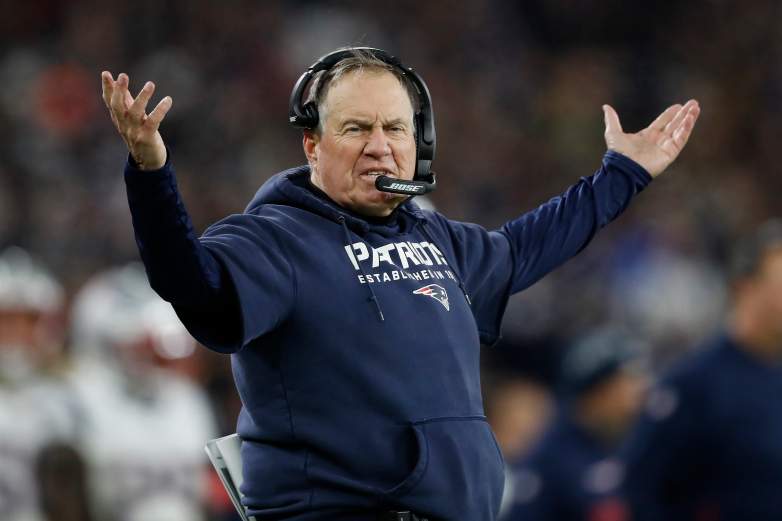
GettyEx-Patriots head coach Bill Belichick.
Bill Belichick is widely regarded as one of the best coaches in NFL history, but even the greats make critical errors. The scenario: Against the rival Colts with just over two minutes to go in the game on his own 28-yard line leading by 6 points, Belichick elected to go for it on 4th-and-2. The Pats failed, and the play call remains a big-time head-scratcher. Even some of Belichick’s former players questioned it.
Belichick’s decision left a powerful Colts offense led by Hall of Fame QB Peyton Manning waiting to capitalize. Manning hit receiver Reggie Wayne for the go-ahead TD pass with 13 seconds left, leading Indy to a 35-34 win. NFL analytics often show that going for it on 4th down is more favorable on the opponent’s side of the field but is riskier when deep in one’s own half, especially within 30 yards of the end zone. Belichick learned that lesson the hard way.
4. Jeff Fisher’s Penchant for Playing Injured QBs
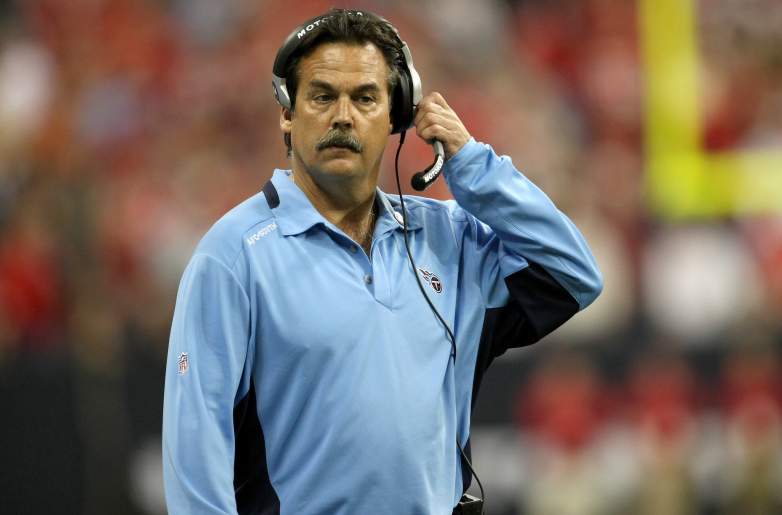
GettyEx-Titans head coach Jeff Fisher.
Former Tennessee Titans head coach Jeff Fisher’s mishandling of his injured QBs earns him our No. 4 spot. Take how he handled Steve McNair, the Titans’ quarterback from 1995 to 2005, for instance. In 2004, McNair suffered a sternum injury but continued to play, which only exacerbated his condition and ultimately limited his effectiveness.
Another example is Fisher’s handling of Vince Young, who was drafted by the Titans in 2006. Young showed promise early in his career, but injuries and inconsistencies limited him. Fisher didn’t help. In 2010, after suffering a thumb injury, Young had a confrontation with Fisher, leading to the former QB’s benching and eventual departure. It was another prime example of Fisher’s inability to work with a promising young franchise quarterback, which proved to be an unfortunate trend over his coaching career.
3. Dan Quinn’s Play Calling in the Super Bowl LI (2017)
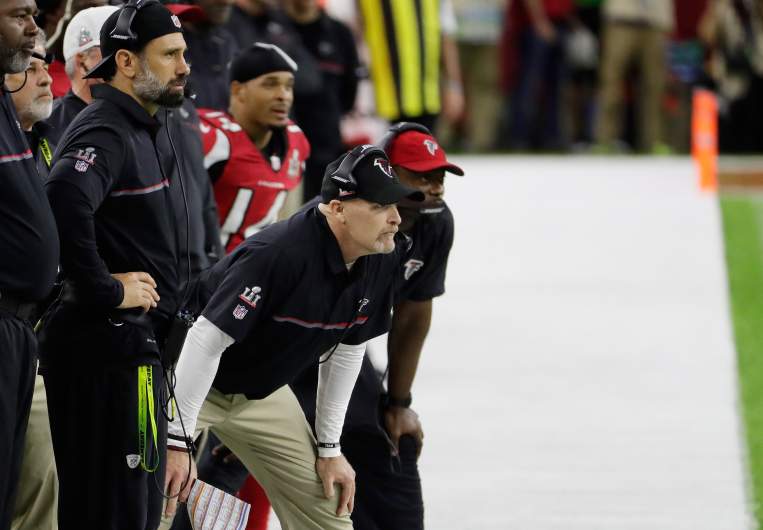
GettyEx-Falcons head coach Dan Quinn.
In 2017, the Atlanta Falcons lost to the New England Patriots, 34-28, in the Super Bowl after leading 28-3. Former Falcons head coach Dan Quinn was at the helm of what is often cited as one of the most glaring coaching collapses in NFL history. Still up by 8 points with about four minutes left, the Falcons chose to pass rather than run the ball, which would have milked the clock and forced the Patriots to use their timeouts. Instead, a series of unsuccessful pass plays allowed New England to conserve time, regain possession and get back in the game.
In the first half, the Falcons’ defense effectively pressured QB Tom Brady, but as fatigue set in in the second half, Quinn failed to make adjustments. That was also a huge issue. The Falcons’ 25-point blown lead left them on the losing end of the biggest comeback in Super Bowl history, something many fans and players will never get over.
2. Jason Garrett’s Decision to Ice His Own Kicker (2011)
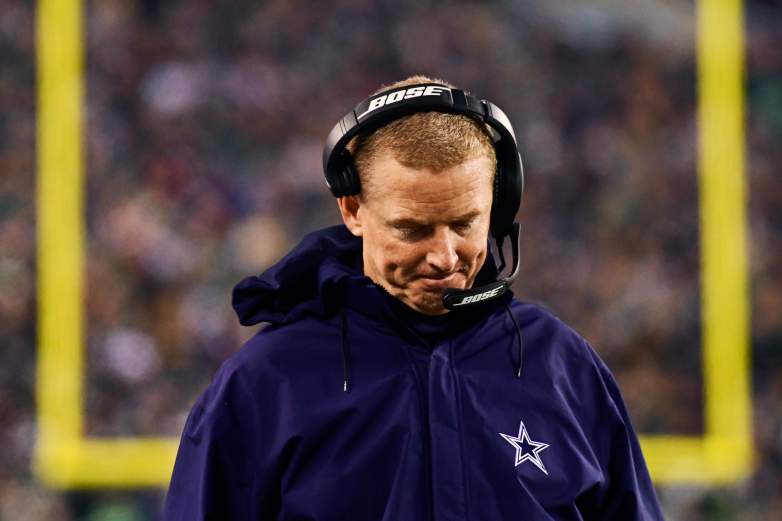
GettyFormer Cowboys head coach Jason Garrett.
Former Dallas Cowboys HC Jason Garrett’s decision to ice his own kicker, Dan Bailey, in 2011 during a game against the Arizona Cardinals is widely regarded as one of the most baffling and disastrous coaching decisions ever. In a tied game (13-13) with time expiring in regulation, Garrett called a timeout just as Bailey was about to attempt a 49-yard field goal.
Bailey’s first attempt, which would have won the game, was good. However, following the timeout, Bailey missed his re-kick, which sent the game into overtime. The Cowboys eventually lost 19-13 on a Cardinals touchdown in OT. Icing a kicker is typically a strategy employed by the opposing coach with the aim of disrupting the timing or confidence of the player. Garrett’s choice to use it against his own kicker went against convention, to say the least.
1. Pete Carroll’s Pass Call in Super Bowl XLIX (2015)
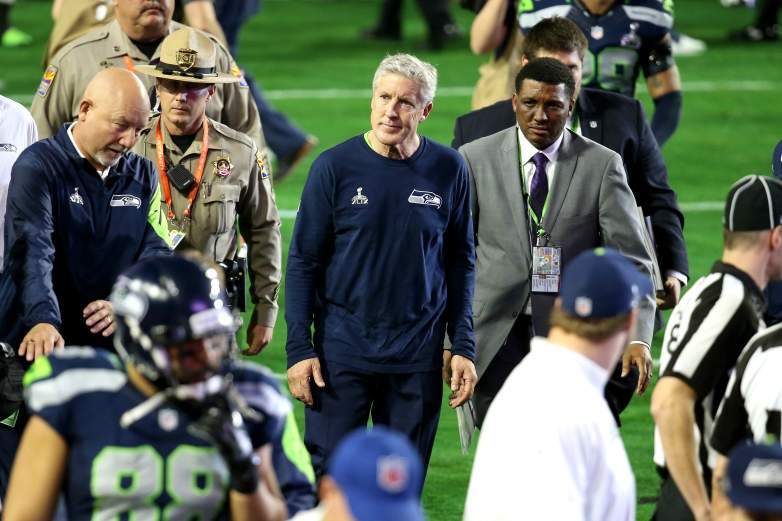
GettyPete Carroll looks dejected after the Seahawks fell to the New England Patriots in Super Bowl 49.
With only 26 seconds remaining and a 2nd-and-goal situation from the one-yard line, the Seattle Seahawks trailed the Patriots, 28-24, in the 2015 Super Bowl. The Seahawks had one of the league’s best short-yardage backs at the time, Marshawn Lynch, available. Lynch had already rushed for over 100 yards in that game, but instead of handing it off to Lynch for the lone yard, Carroll called a pass play.
Carroll’s decision to pass rather than hand off to Lynch — especially given Lynch’s efficiency near the goal line — earns our top spot due to the sheer consequences. Patriots cornerback Malcolm Butler intercepted QB Russell Wilson’s pass, effectively ending the game and any hopes the Seahawks had of winning. Seattle needed just one yard, and the team had Beast Mode on the roster. It’s a shame Carroll elected to throw instead.
READ NEXT: The 10 Worst Chokes in NFL History
What did we miss? Sound off on more worst NFL coaching calls in the comments!
Comments
The Top 10 Worst Coaching Decisions in NFL History, Ranked